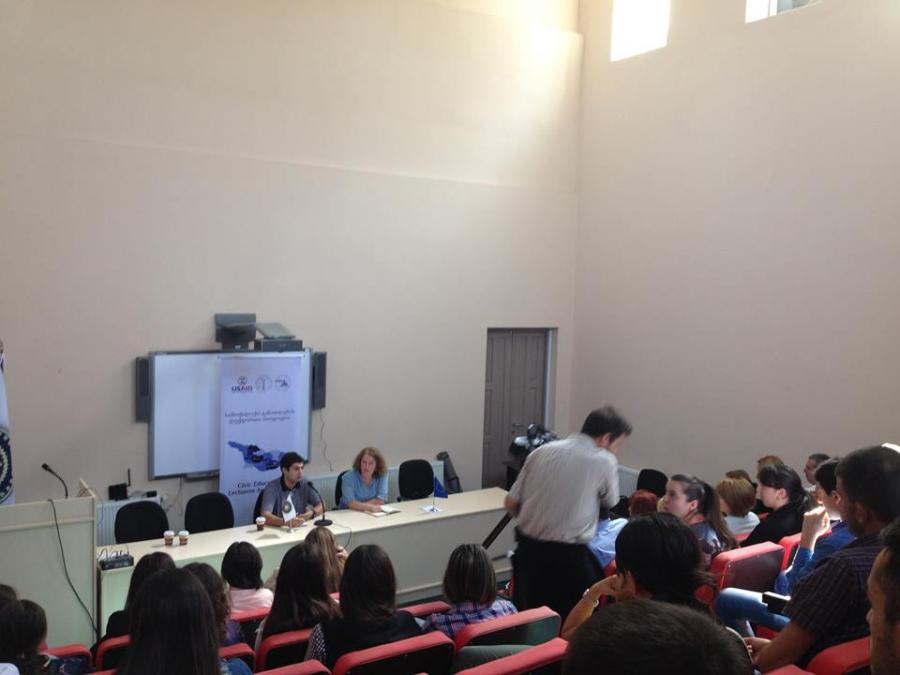On September 27, at Gori State Teaching University was held the tenth discussion in the frames of the Discussion Series “Transformation from Totalitarian to Democratic System”, which was led by the professor of Georgian American University Giorgi Gobronidze. Students and professors from the universities of Tbilisi, Gori and Kutaisi, with the members of Civic Education Lecturers Association attended the discussion.
At the beginning of the discussion the executive director of the Civic Education Lecturers Association and the moderator of the discussion Tamar Karaia pointed out, that the fact that the discussion about this topic was held in Gori and on the day of the fall of Sokhumi, was truly symbolic. She asked the audience for a moment of silence to show respect for the warriors who have died during the war in Abkhazia. During the discussion the speaker emphasized the fact that the events happened in the recent history of Georgia still causes a huge interest in society.

He touched upon the nature of totalitarianism, when the boundary between the state and society annihilates, autonomous aspect of public life disappears and everything goes under the total control of the government. The speaker also talked about complex, bloody and complicated way, in which the Georgian people went through for regaining independence of the state.
The speaker pointed out, that the fact that there was a long discontinuous in Georgia statehood history in nineteenth century is significant. During that time Georgia turned out to be the part of the Russian Empire and later in the XX century part of the totalitarian Soviet Union. The new history of Georgian statehood doesn’t cover long period of time, which means that we still haven’t finished the process of state formation, therefore the urgency of state building process raises the responsibility of the government as well as the responsibility of every citizen of Georgia to contribute to the development of the country.
The speaker pointed out that the country should continue its study of the totalitarian regimes, and public awareness of this topic should be increased. After the end of the discussion, the students visited the museum of Joseph Stalin, as the place of the collective memory in Georgia.
The event was held by the Civic Education Lecturers Association and made possible with the support of USAID in the framework of the project Strengthening Electoral Processes (SEP), implemented by the International Foundation for Electoral Systems (IFES).


